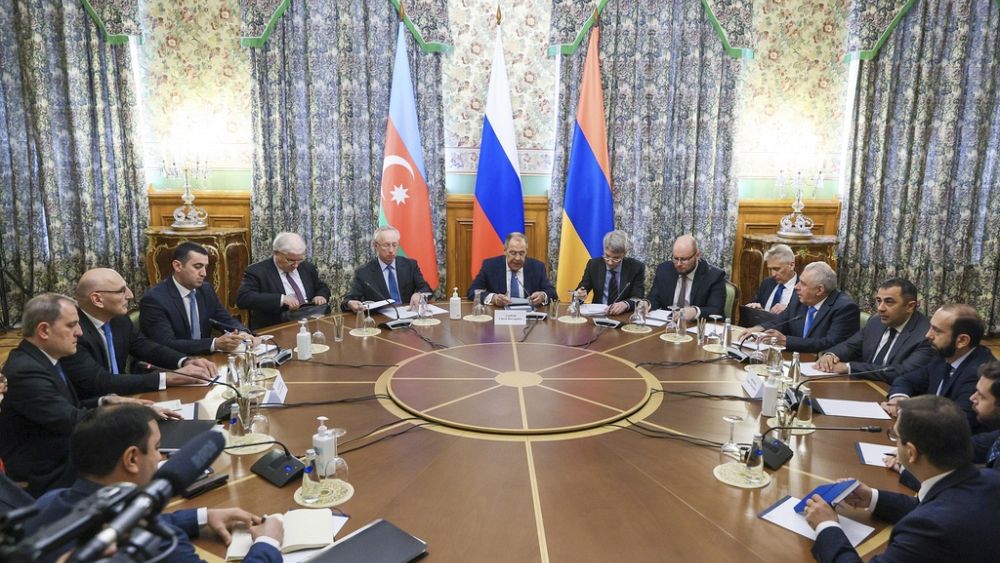Armenia and Azerbaijan promised “concrete measures” on Thursday to ease their very tense relations after three decades of conflict for control of the Nagorno-Karabakh enclave, reconquered last September by Baku.
After a final deadly conflict last September, have Azerbaijan and Armenia managed to bury the hatchet?
In recent weeks, negotiations have no longer progressed between these two Caucasian countries, despite their stated objective of signing a peace agreement. But at the end, this Thursday, of talks between the office of the Armenian Prime Minister, Nikol Pashinian, and that of the Azerbaijani President, Ilham Aliev, Baku and Yerevan finally issued a joint declaration.
Azerbaijan and Armenia have committed to taking “concrete measures aimed at strengthening confidence”according to this text, and we reaffirm “their intention to normalize their ties and sign a peace agreement.”
They also agreed on the release of 32 Armenian prisoners of war, in exchange for that of two Azerbaijani soldiers.
“Major progress” for the EU
The two countries “will continue to discuss confidence-building measures that will be taken in the near future and call for support from the international community”still according to this document.
On X (formerly Twitter), the President of the European Council, Charles Michel, welcomed this joint declaration and the announced release of prisoners on Thursday, describing them as“major progress” and “unprecedented openness in political dialogue”.
“Today’s progress is a key milestone. I now encourage leaders to finalize an Armenia-Azerbaijan peace agreement as quickly as possible”he added.
Armenian diplomacy also affirmed on Thursday that it had responded “positively” to a proposal from American Secretary of State Antony Blinken to organize a meeting of Armenian and Azerbaijani foreign ministers in Washington.
Armenia and Azerbaijan have been engaged for decades in a territorial conflict over the Azerbaijani region of Nagorno-Karabakh, which Baku reconquered in September after a lightning offensive against Armenian separatists.
Almost the entire Armenian population of the region, more than 100,000 people out of the 120,000 recorded, has since fled to Armenia.
Difficult negotiations
The Azerbaijani victory marked the end of a dispute that led to two wars, one in the early 1990s, the other for six weeks in the fall of 2020, which left tens of thousands dead.
Armed incidents still take place regularly on the border between the two countries. Armenia, for example, claimed on Monday that one of its soldiers had been killed near the border with the Azerbaijani enclave of Nakhichevan.
Several rounds of negotiations led separately in recent months by Russia, the European Union and the United States have not produced results.
The traditional arbiter in the region, Moscow, monopolized by its offensive in Ukraine, has lost influence and its relations have become strained with the Armenian ally, which criticizes it for a lack of support.
In mid-November, Azerbaijan refused to participate in peace talks with Armenia, scheduled in the United States for November, citing a “biased” position from Washington after comments by American Deputy Secretary of State James O’ Brian.
It was then announced that James O’Brien would visit the Azerbaijani capital in December for talks aimed at fostering peace.
In October, Azerbaijani President Ilham Aliev, for his part, refused to meet Armenian Prime Minister Nikol Pashinian in Spain due to recent European, particularly French, support for Armenia.

